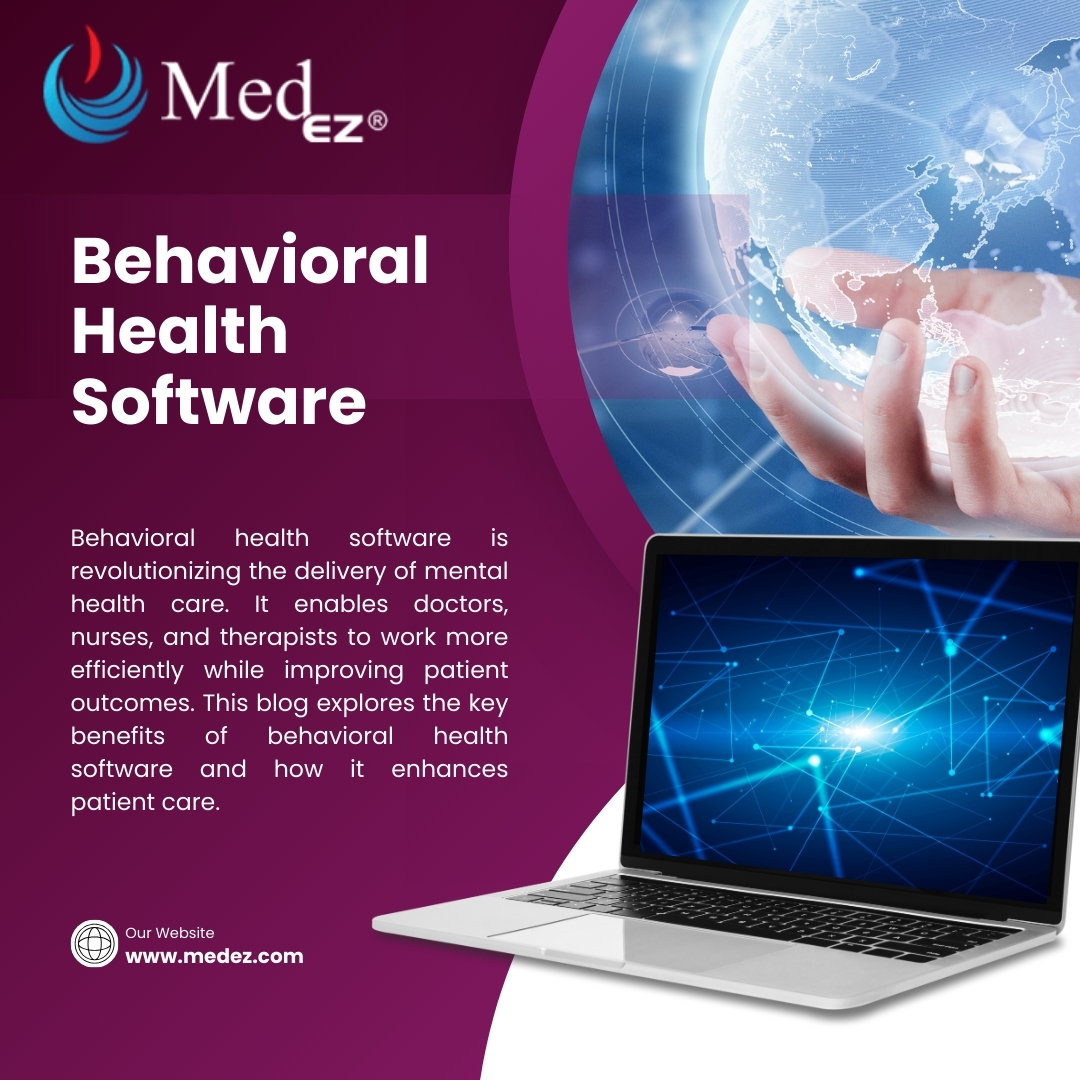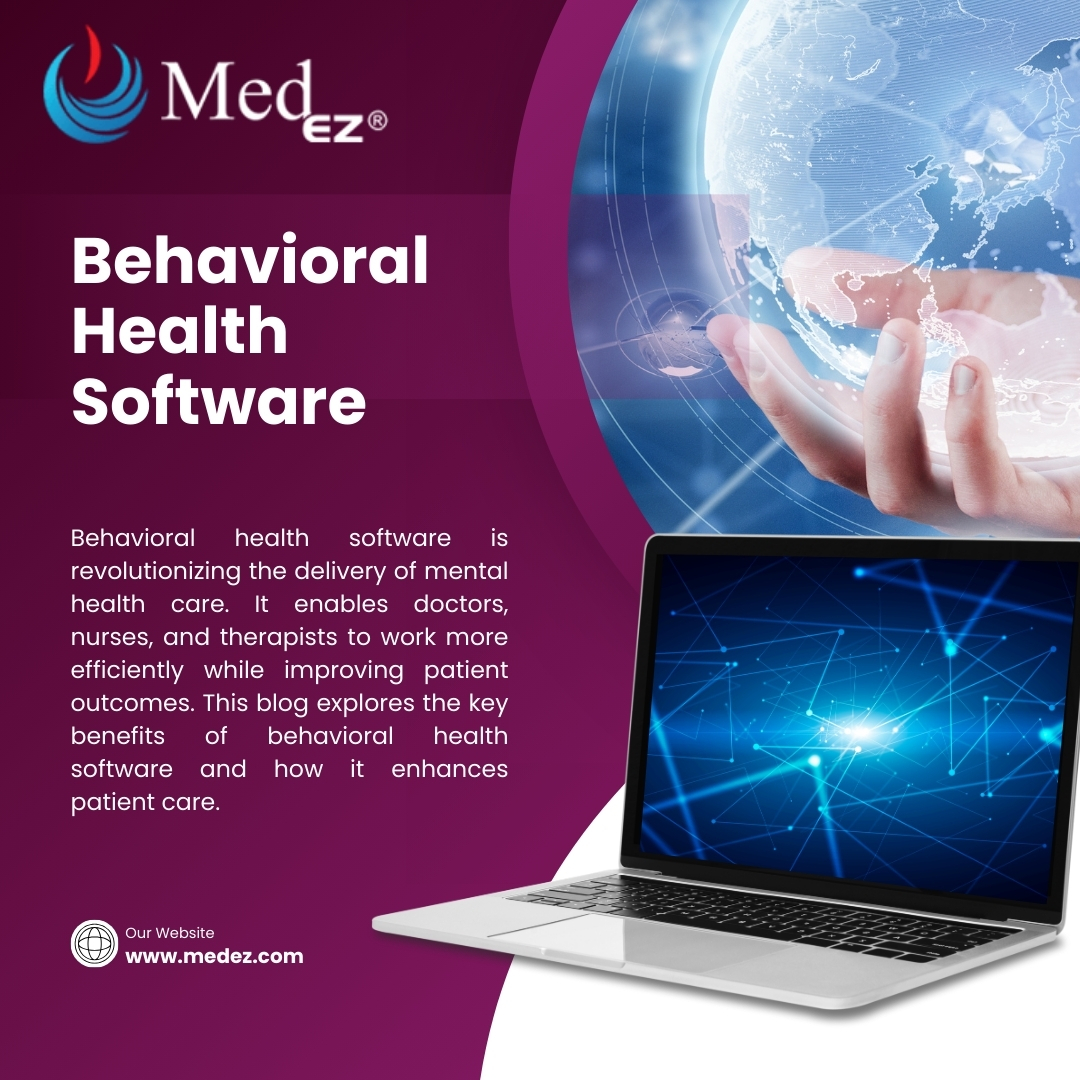How Behavioral Health Software Supports HIPAA Compliance and Data Security

Strong 8k brings an ultra-HD IPTV experience to your living room and your pocket.
In today’s digital healthcare environment, protecting patient information is more than a regulatory requirement—it’s a cornerstone of trust. This is especially true in behavioral health, where the sensitivity of patient data requires the highest standards of privacy and security. Healthcare providers must not only meet the legal standards set by the Health Insurance Portability and Accountability Act (HIPAA), but also uphold the dignity and confidentiality of their patients.
Modern behavioral health software plays a vital role in ensuring HIPAA compliance while safeguarding sensitive data. At MedEZ, we understand how crucial this is to providers and the patients they serve.
________________________________________
What is HIPAA and Why It Matters in Behavioral Health
HIPAA, the Health Insurance Portability and Accountability Act of 1996, is a U.S. federal law that establishes national standards to protect patients’ medical records and personal health information (PHI). Healthcare providers and their business associates must comply with HIPAA regulations or face significant penalties, including substantial fines and legal consequences.
In behavioral health, where records often contain personal and emotional information, HIPAA compliance is not just a legal obligation but an ethical responsibility. Ensuring privacy helps create a safe space where patients can be open and honest, which is essential for effective treatment.
The HIPAA Privacy Rule, a key law component, governs how healthcare organizations collect, use, and disclose PHI. This includes providing patients with a Notice of Privacy Practices and securing written authorization for specific uses of their health data.
________________________________________
Why Data Security is Especially Crucial in Behavioral Health
The provider-patient relationship in behavioral health is built on trust and transparency. Patients share information that may relate to mental health diagnoses, therapy notes, medication regimens, family history, and even legal or social issues. A breach of this information can lead to serious personal, professional, and emotional consequences for patients.
Because of the high sensitivity of behavioral health data, maintaining strong security measures isn’t just advisable—it’s imperative.
________________________________________
How Behavioral Health Software Supports HIPAA Compliance
Advanced behavioral health management software, like MedEZ, is specifically designed to address behavioral health organizations' unique data security needs. Here’s how it helps support HIPAA compliance:
1. Role-Based Access Control
Only authorized personnel have access to patient records. Role-based permissions ensure that users can only view or edit the information necessary for their responsibilities. Two-factor authentication adds an additional layer of security.
2. End-to-End Data Encryption
Data encryption transforms sensitive information into unreadable code both during transmission and when stored (at rest). This means that the data remains indecipherable to unauthorized users even if a breach occurs.
3. Audit Trails and Activity Logs
Robust audit trail functionality tracks every access point and user action within the system. If an anomaly occurs, it can be quickly traced and addressed. This accountability is a core component of HIPAA compliance.
4. Automated Backups and Disaster Recovery
To prevent data loss from hardware failures or cyberattacks, behavioral health platforms often provide regular, automated backups and rapid disaster recovery protocols, ensuring continuity of care and data integrity.
5. Regular Security Updates and Patch Management
Keeping software up to date is critical. Behavioral health systems like MedEZ release regular updates that patch vulnerabilities and enhance security protocols, minimizing exposure to emerging threats.
6. Secure Cloud Hosting
Many behavioral health platforms are cloud-based, providing secure off-site data storage. Reputable cloud providers include advanced protections such as firewalls, encryption, access controls, and 24/7 security monitoring, meeting or exceeding HIPAA standards.
________________________________________
Built-In Compliance Tools for Peace of Mind
Leading software platforms also integrate HIPAA-specific features, including:
• Staff training modules
• Compliance checklists
• Automated reminders for policy updates and re-consents
• User access reporting tools
These features help ensure staff members remain informed, consistent, and compliant in their daily practices.
________________________________________
Final Thoughts
HIPAA compliance is not just a checkbox for behavioral health providers—it’s a commitment to safeguarding patients' trust in their care team. Behavioral health software plays an essential role in upholding that promise, allowing organizations to deliver high-quality care while maintaining the highest data security and privacy standards.
At MedEZ, we’re dedicated to helping providers stay compliant, efficient, and focused on what matters most—supporting patients through their unique healthcare journeys. The right software not only protects your organization, but it also strengthens the relationship between patients and providers through trust, security, and peace of mind.
Note: IndiBlogHub features both user-submitted and editorial content. We do not verify third-party contributions. Read our Disclaimer and Privacy Policyfor details.



